

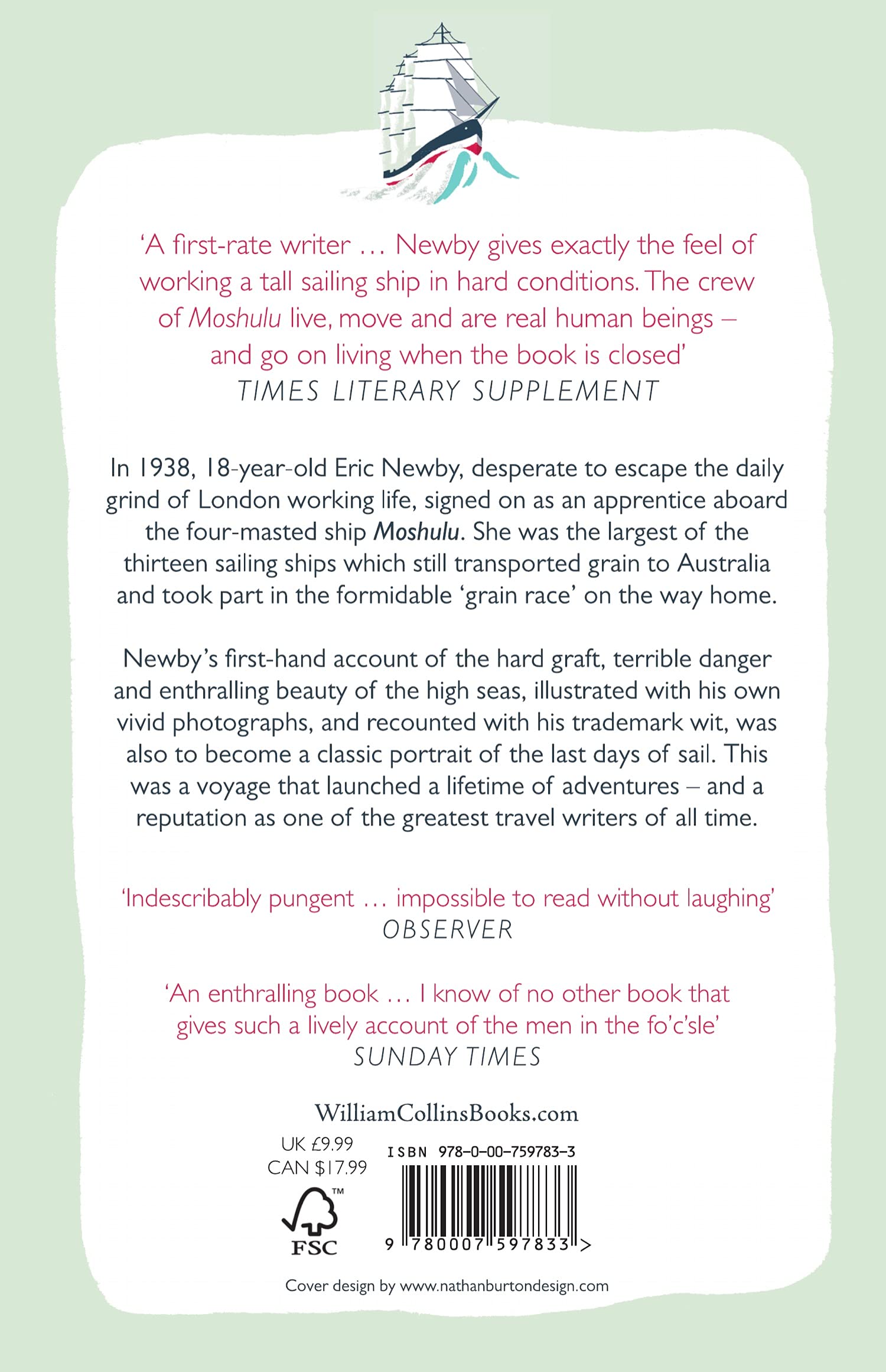
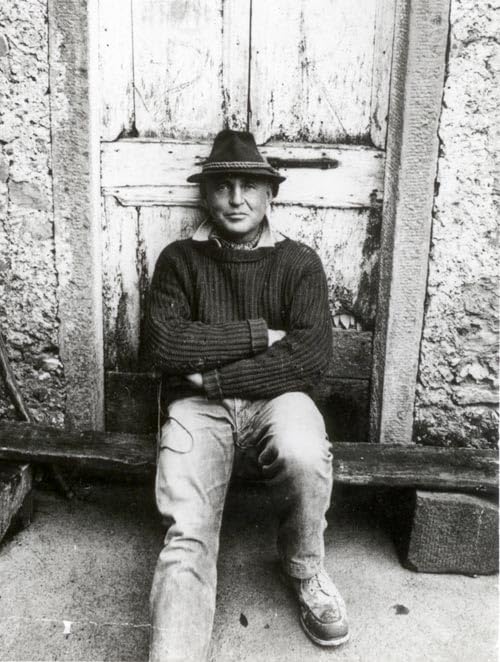
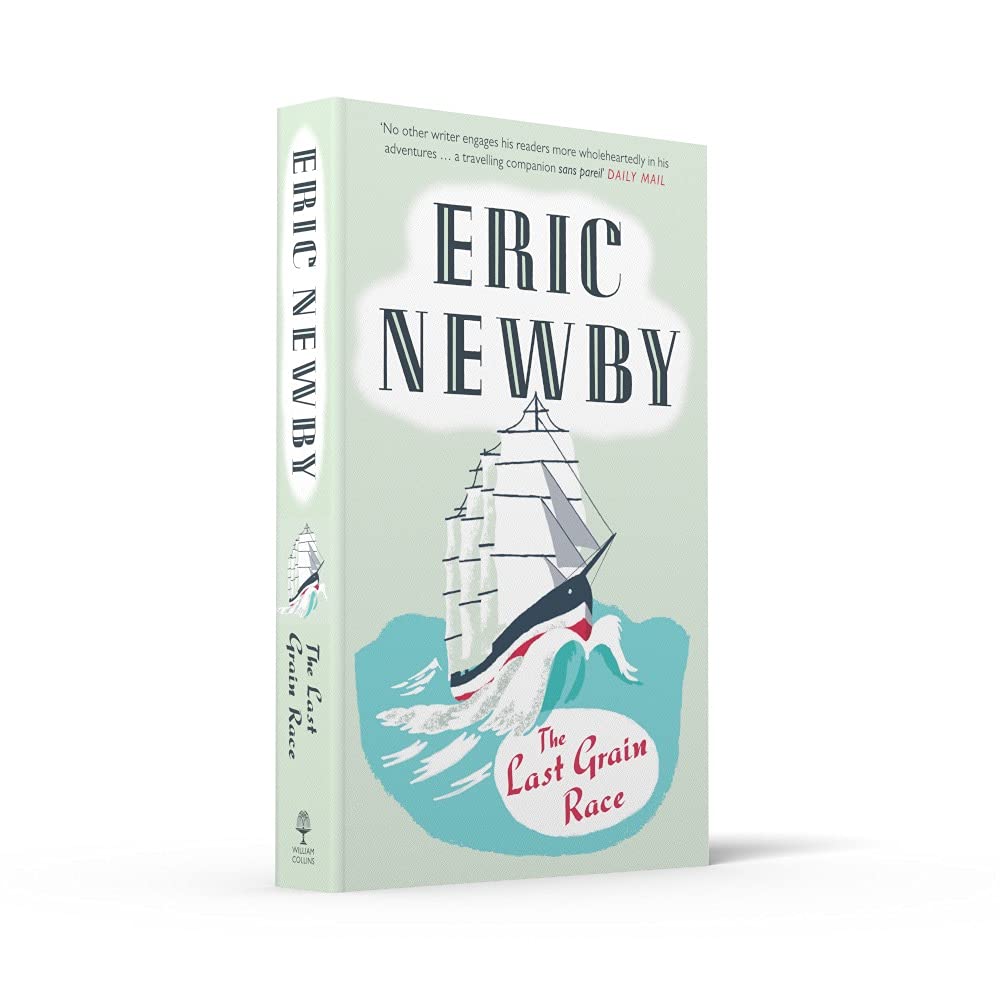
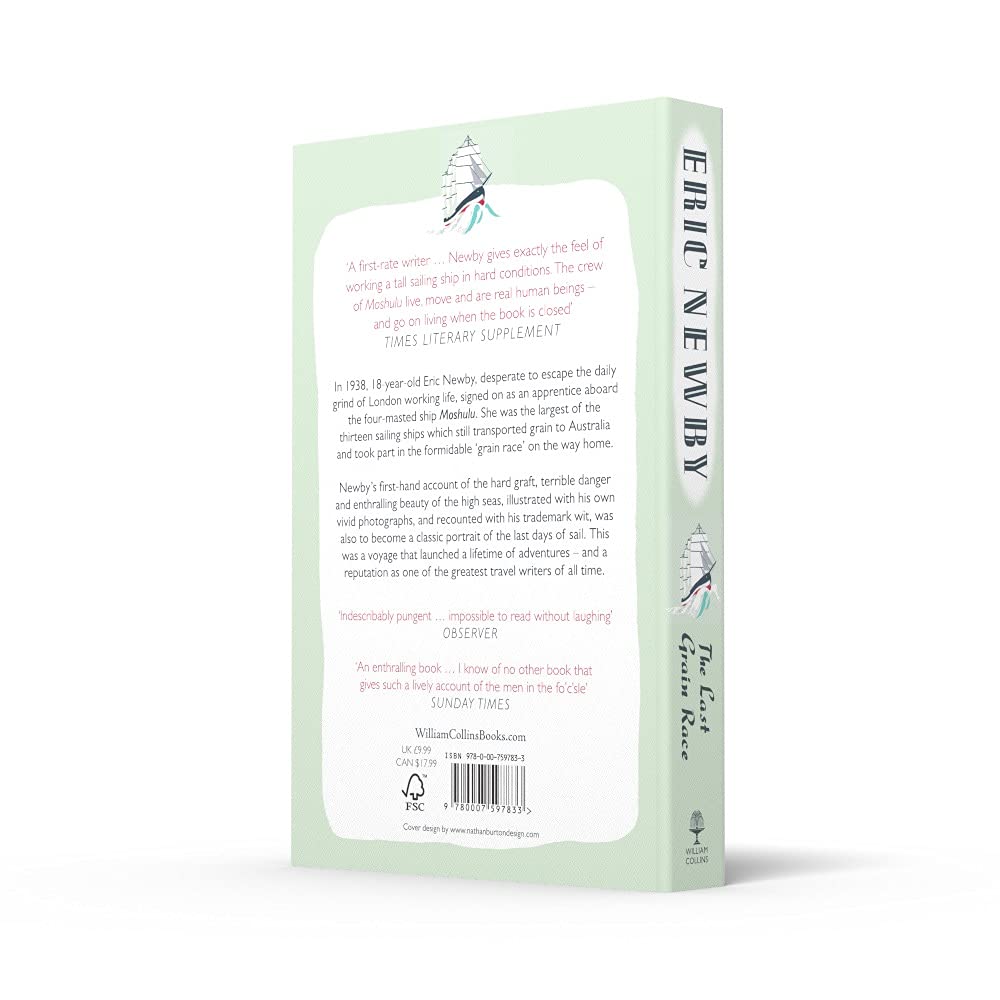
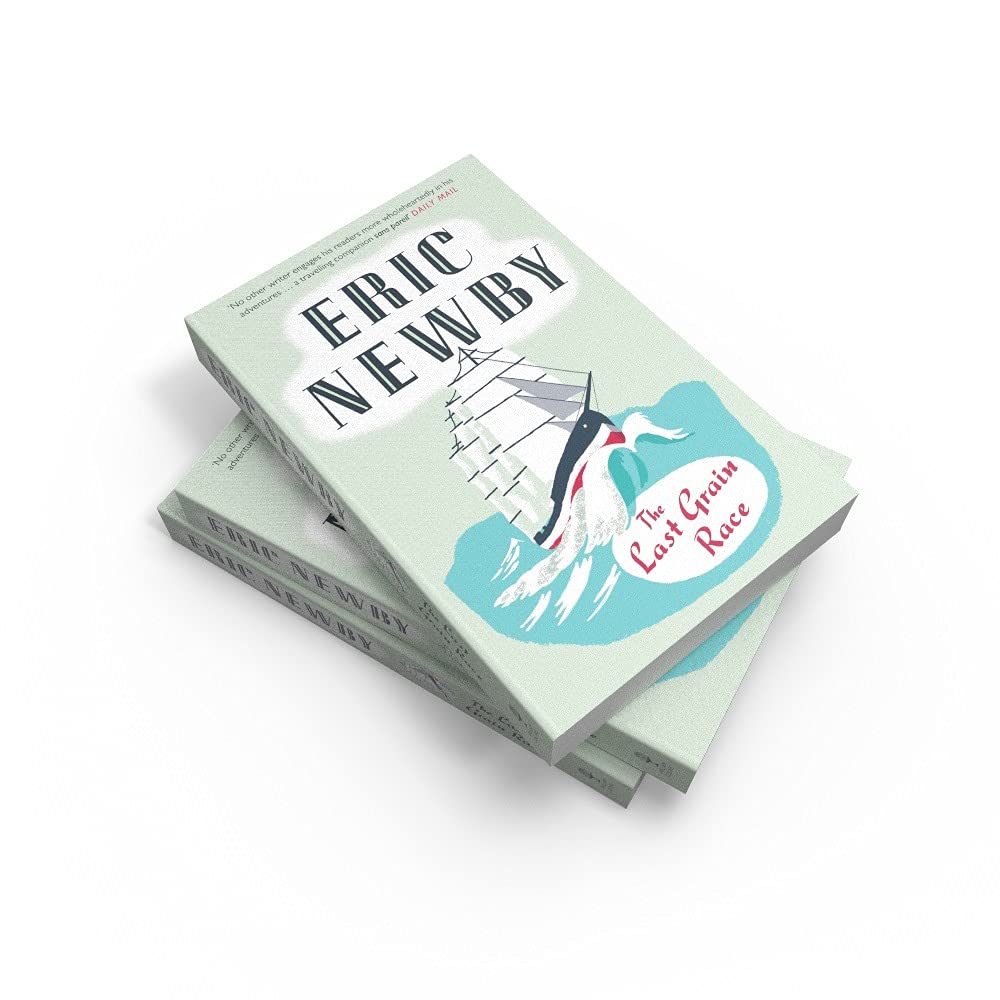
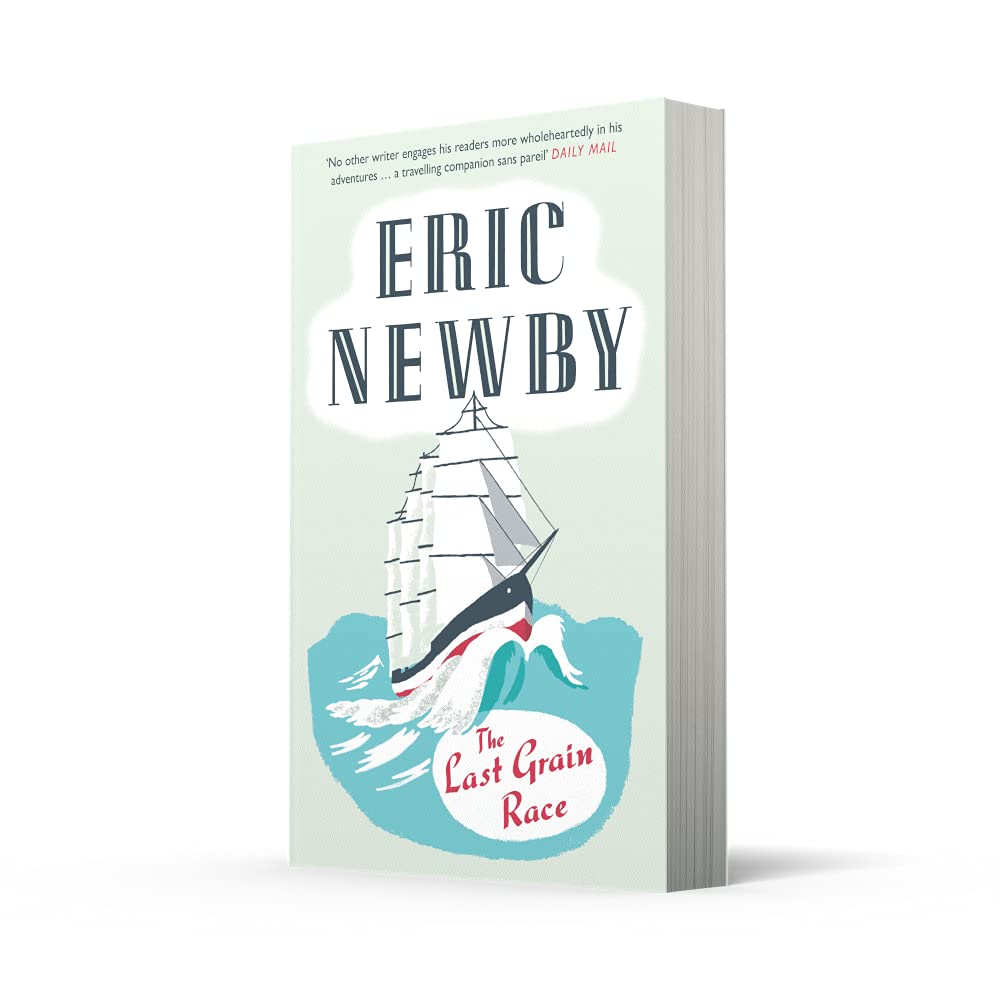
The Last Grain Race
T**G
A book for every reader.
An interesting and intriguing read about a young man's long voyage as a naive seaman on the last of the largest, iron-hulled sailing ships made, from Ireland to South Australia and return. The book is written from the diaries and memories of the author, and is laced with technical information, experiences, and humour. The book is a tribute to the times and hardships, but also the joys, of a life that no longer exists.
H**R
A really fabulous book, well written, infomative, and important
This is a splendid book. I've read numerous books about sailing and sailing ships, of all sizes, and especially about the great sailing ships on the tea, nitrate and grain trades, etc etc, and I reckon this is the most enjoyable, well written and informative books of any of them. Newby writes very well, and with great humour and self-deprecation, about all aspects of life aboard Moshulu, the biggest working barque of the time. After an initial chapter describing Newby's pre-Moshulu life ashore, the remainder of the book concerns the voyage out to Australia (from Belfast) in ballast; then the few months in Australia,loading; then the voyage home again, to Queenstown (Cobh) for orders, and then to Glasgow. Along the way, we get a really detailed description of things like the deck layout, the watchkeeping system, daily life on board, the rigging and sail-handling, etc etc.Poor Moshulu, after this glorious part of her working life, she was seized by the Germans. Her rigging was removed and put into storage, and was subsequently destroyed by bombing raids. Moshulu spent a long time then as a floating grain store/warehouse, before eventually crossing the Atlantic and being put to use as a museum ship and (I think) as a restaurant, from 1970, in New York and then Philadelphia.But this was all long after her great last grain race glory-days of 1939/1940.If you're interested in sailing ships, or if you just like a well-written book, this is for you. Very highly recommended.
G**I
Eric Newby - The Last Grain race
Arrivato puntualmente, è un ottimo libro autobiografico..I marinai di quei tempi non erano uomini di lettere e la maggior parte di essi ci ha lasciato solo uno scarno Giornale di Bordo. Eric Newby (come Richard H. Dana - Two Years before the Mast - e pochi altri) era uno che sapeva scivere e che ci ha lasciato una testimonianza preziosa. Un libro che ho già consigliato a molti amici "marinai".
X**G
Great Read
A fascinating look into a dying world. This was a side of Eric Newby I didn’t know about. Who would have thought he was as hard as nails?
S**D
Newby's first - but not his best
I enjoyed much of this book which is an adventure on the high seas, and a rare insight into the workings of a long-since-extinct way of life and transport. Newby certainly had a great appetite for adventure and a talent for documenting it.Perhaps the most interesting element of the book is the day-to-day life of the crew and the interactions Newby has with his fellow sailors.The book loses a couple of stars from me (I think it deserves 3.5) because I felt it could have been edited down in many places. There are a lot of long passages that include a lot of sailing and shipping jargon, weather reports, ship positions etc; I found myself scanning over a lot of these sections. 50 or so pages could have been shaved off, without losing the story. Although perhaps if you are a sailor, you would enjoy them more than I did.Secondly, Newby includes a lot of Swedish phrases which go unexplained. I don't know why he did not include translations - but it means you don't understand what was said to him at times.If you are generally interested in sailing you will most likely enjoy the book. And it does document something that no longer exists - making it a rare account. But if you're looking for an introduction to Newby - I would recommend 'Love and War in the Apennines' instead.
Trustpilot
1 month ago
5 days ago